On MDGs, SDGs and intersecting inequalities
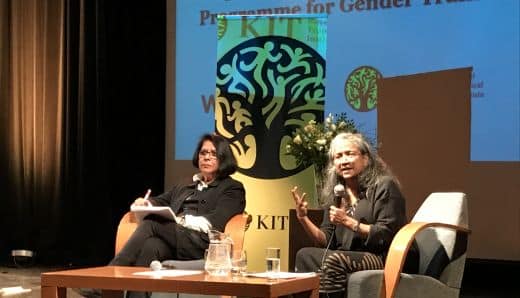
'Locked out and left behind? Gender, intersecting inequalities and the SDGs'. Quite a mouthful, but this was the theme of this lecture on a Thursday afternoon at the Royal Tropical Institute (KIT) in Amsterdam. Last February 15, Professor of Gender and Development Naila Kabeer was a guest here. Despite the sometimes hard-to-follow material, it was a very interesting afternoon with a lot of interest from the audience. The questions after the lecture also clearly showed the emotion from the audience. After a brief search for the right entrance to KIT, I entered a packed auditorium. The lecture began with a brief introduction on the transition from the Millennium Development Goals (MDGs) to the Sustainable Development Goals (SDGs). Unlike the MDGs, the Sustainable Development Goals are no longer just about reducing poverty in developing countries, but also about improving the environment and promoting sustainable economic growth worldwide. They have become truly "global goals". So agrees Kabeer, who said of MDG 3 - "Promote gender equality and empower women" - that not much has changed in the world and the same problems still arise. The SDGs can give a better understanding of this. This lecture focused on SDG 10 for reducing inequalities between and within countries.
Exceptional award for exceptional leadership
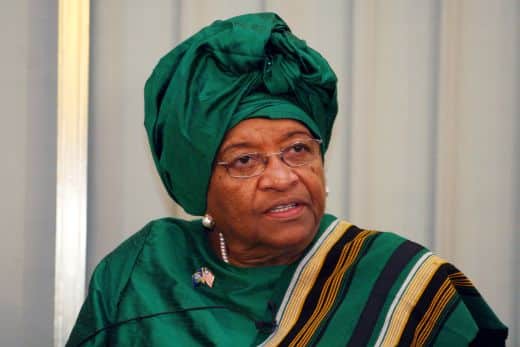
No African leaders were commended by the Mo Ibrahim Foundation for their outstanding achievements as African leaders in the years 2009, 2010, 2012, 2013, 2015 and 2016. This while the award was first presented in 2007. This year, on the other hand, a former head of state has again been commended for her outstanding achievements in African leadership. The award was presented to Liberia's former president Ellen Johnson Sirleaf, who, after completing two terms in office, had to make way for former footballer George Weah in January this year. She will receive a $5 million (€4.1 million) award that will spread over 10 years. On top of that comes a lifetime reward of $200,000 annually. But to what does Sirleaf, the woman who features as Africa's first female president and Nobel laureate, owe this?
Small changes make a difference! The power of new activism and civic initiatives in Africa
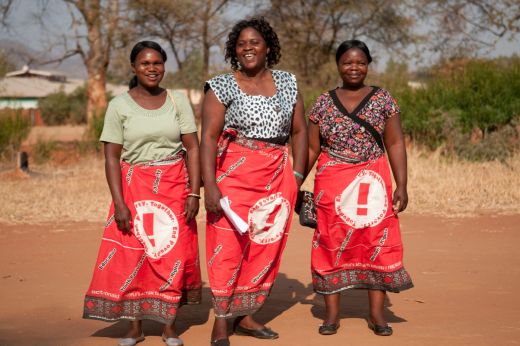
"It is the little things that citizens do. That is what will make the difference." So argued Dr Wangari Muta Maathai in one of her speeches addressed to the entire African continent. The Kenyan environmental and political activist and Nobel laureate knew how to powerfully encourage activism and civic initiatives to create positive change like no other. Where politics is still often traditional and closed, ordinary people know how to penetrate power and force change. This occurs in many areas, such as women's rights, children's rights, environment, anti-corruption and economic rights. With technological developments and social media as a powerful weapon, more and more people, mostly young people and women, are making their voices heard. Consequently, this year's Africa Day will focus on activism and civic initiatives.
Take part and win €5,000 for your initiative in Africa
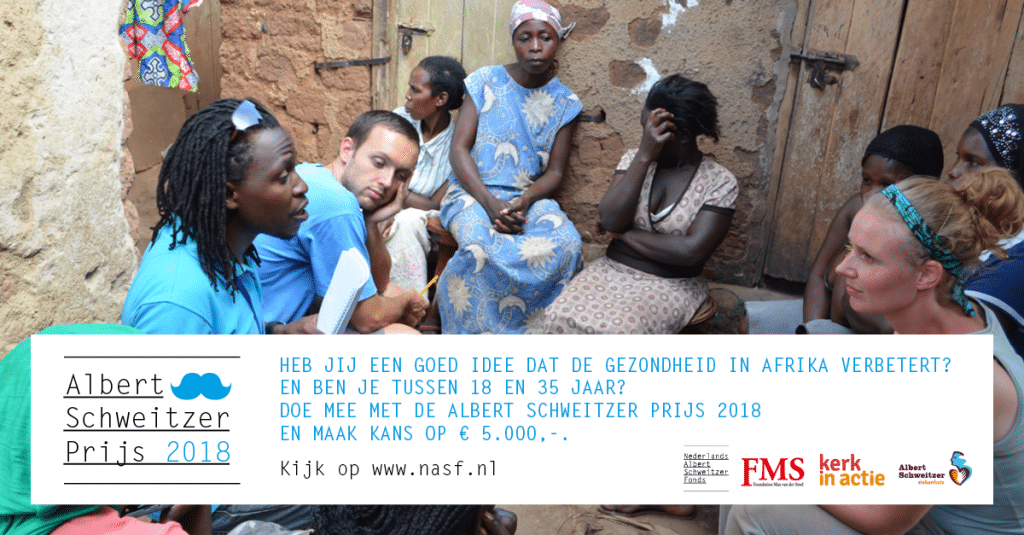
Do you want to contribute to health(care) in Africa? You can! Then apply now for the Albert Schweitzer Prize 2018 and win €5,000 for your idea. With your talent, expertise and commitment, you can improve the health of millions of people in Africa.
African 'Iron Lady' makes way for former footballer

After 12 years of bringing stability and some prosperity to Liberia, it is now over and done with for African 'Iron Lady' Ellen Johnson Sirleaf. She was the first African woman to succeed to power in 2006, after the country was ravaged by two bloody civil wars. During her presidency, however, Sirleaf managed to keep the peace in Liberia and received the Nobel Peace Prize along with three others. Sirleaf also brought about significant economic and social developments. But now she is succeeded by former footballer George Weah.
Political Café 26 January: What is the (un)sense of elections in Congo?
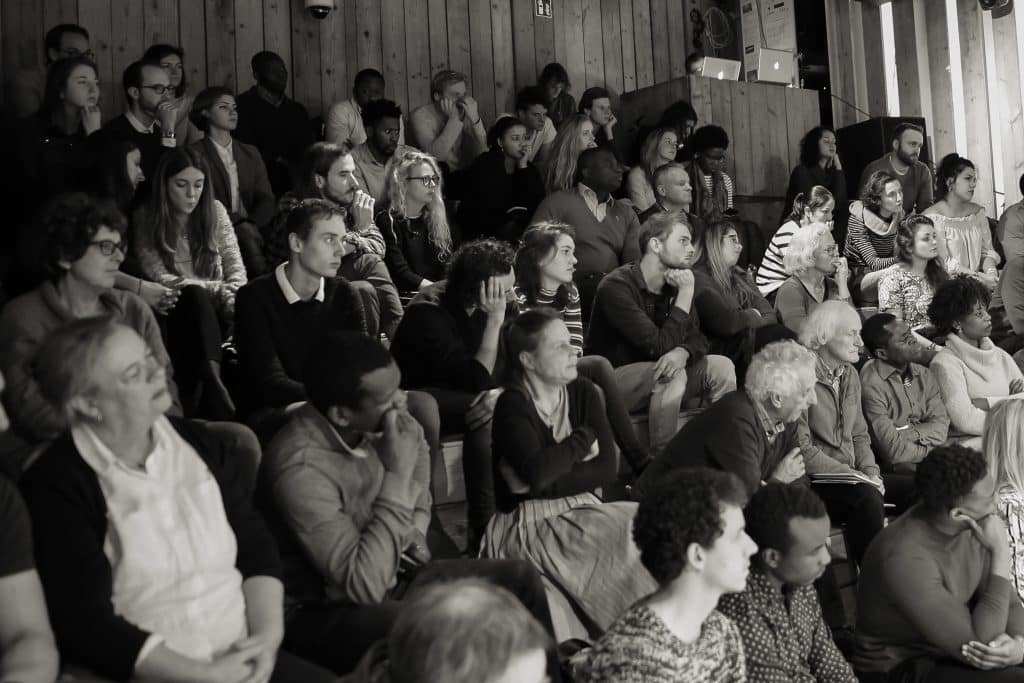
A sold-out Humanity House, passionate speakers and an impressive documentary. All the ingredients for a special evening were present on 26 January. And attention for Congo. There was no lack of that either.
A hopeful future for the Democratic Republic of Congo?
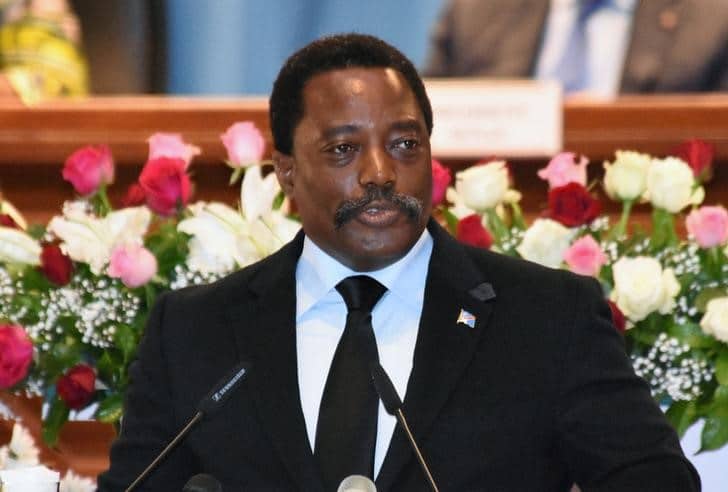
This Friday 26 January, Humanity House in The Hague will host a political café at 20:00 in response to the political situation in the Democratic Republic of Congo. Among other things, we will talk about the question of the (un)usefulness of elections.
Leadership change South Africa has two faces
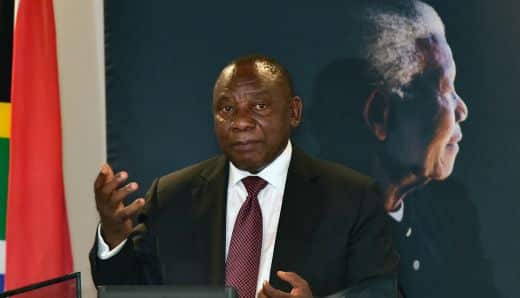
"It is better to lead from behind and to put others in front, especially when you celebrate victory when nice things occur. You take the front line when there is danger. Then people will appreciate your leadership." - Nelson Mandela
Volunteers wanted for Africa Day 2018!
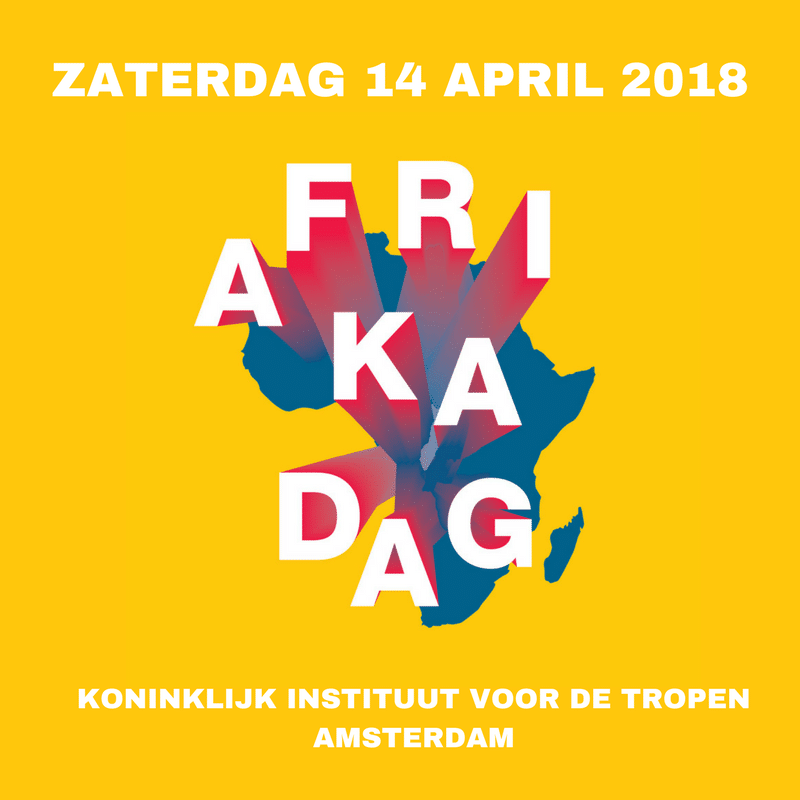
The FMS's most fun event is just around the corner! On Saturday 14 April, the annual Africa Day will take place again, at the Royal Tropical Institute in Amsterdam. With some 1,500 visitors, speakers and volunteers, this is the largest public event on Africa and international cooperation in the Netherlands. This year's Africa Day is dedicated to change and the power of activism and civic initiatives in it. Besides the many debates, speeches and workshops by national and international organisations, there will of course also be time for relaxation and entertainment during the extensive cultural programme, with films, literature, art and music. To top it off, the sixth edition of "Africa at Night", the Africa Day afterparty for all volunteers, visitors and speakers, will take place in the evening.
Will 'mugabism' endure in Zimbabwe?
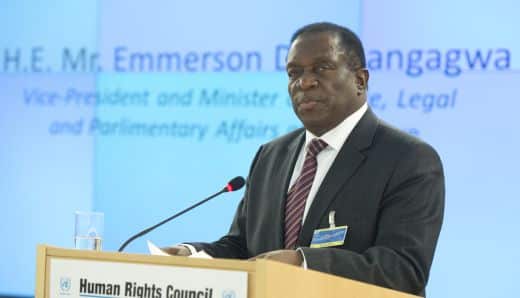
On 21 November 2017, there was a big celebration in Zimbabwe as the country was freed from 'mugabism' after 37 years. President Robert Mugabe stepped down against his will, seeing his wife Grace Mugabe's dream of becoming president dashed. Despite his resignation, a wave of uncertainty swept across the country after the celebrations. 75-year-old Emmerson Mnangagwa succeeded him as president and sees himself as a true democrat who wants to drastically reform the country. However, many doubt the democratic landslide he promises.

